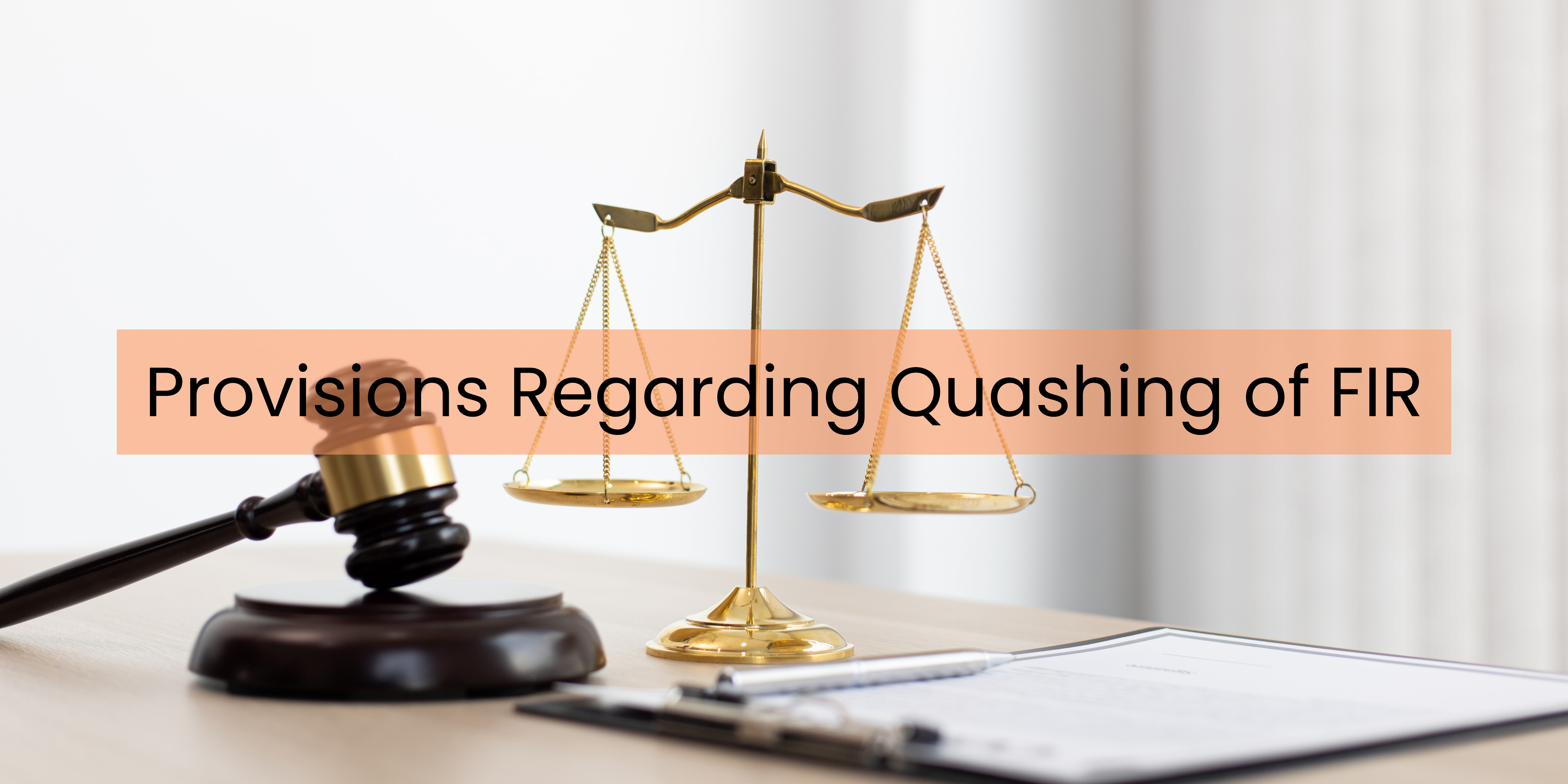When a criminal incident occurs, the aggrieved party can report it to the nearest police station, resulting in the creation of a First Information Report (FIR). This document officially records the complaint and initiates the legal process. However, not all FIRs are based on true facts. Sometimes, First Information Reports are filed with malicious intent or due to misunderstandings, leading to unjust legal proceedings against the accused. In such scenarios, the accused has the option to seek the quashing of the FIR before a chargesheet is filed. This blog delves into the legal provisions and procedures surrounding the quashing of a First Information Report, particularly focusing on the powers granted under Section 482 of the Code of Criminal Procedure (CrPC).
Understanding Quashing of FIR
Quashing a First Information Report means invalidating it through a legal process. The inherent powers of the High Court under Section 482 of the CrPC enable it to quash an First Information Report to prevent the abuse of the legal process and to ensure justice. This section grants the High Court the authority to make orders necessary to secure the ends of justice.
Legal Provisions for Quashing an FIR
Section 482 of the CrPC empowers the High Court to quash a First Information Report if it finds that the FIR:
- Abuses the Process of the Court: If the First Information Report is filed with the intent to misuse the legal system, the court can quash it.
- Hinders the Ends of Justice: If continuing with the First Information Report would prevent justice from being served, the court can intervene.

Grounds for Quashing an FIR
Several grounds can be presented to the High Court to justify the quashing of a First Information Report. These include:
- Lack of Prima Facie Case: If the facts stated in the First Information Report do not constitute a criminal offence.
- Malicious Intent: If the First Information Report is filed with an intent to harass or defame the accused.
- Absurd or Improbable Allegations: If the allegations are so unlikely that no reasonable person would believe them.
- Legal Bar: If any law specifically prevents proceedings against the accused.
- Counter First Information Report: If a counter First Information Report demonstrates the complainant’s malicious intentions.
- Non-Disclosure of a Cognizable Offence: If the First Information Report does not reveal any offence that warrants legal action.
Filing a Petition to Quash an FIR
To seek the quashing of a First Information Report, the accused must file a petition under Section 482 of the CrPC in the appropriate High Court. The petition should include:
- Details of the First Information Report: Clearly mention that the First Information Report is being challenged.
- Allegations: List all the allegations made in the First Information Report.
- Grounds for Quashing: Provide reasons why the First Information Report should be quashed.
- Evidence of Malice: If applicable, evidence showing the complainant’s malicious intent.
- Compromise Details: If the parties have reached a compromise, include those details.
Limitations to Quashing an FIR
There are certain situations where quashing a First Information Report is not permissible, including:
- Specific Legal Provisions: If the CrPC or any other law has specific provisions for redressing grievances, Section 482 cannot be invoked.
- Heinous Crimes: First Information Reports involving serious crimes, such as murder or rape, generally cannot be quashed as the law does not permit compromise in such cases.
- Economic Offences: Financial crimes often require thorough investigation and cannot be quashed easily.
- Barred by Other Provisions: If any other legal provision prevents the use of Section 482, the First Information Report cannot be quashed.
Conclusion
The process of filing a First Information Report is designed to be straightforward to ensure that victims can easily report crimes. However, to prevent misuse, there must be mechanisms to quash frivolous or malicious FIRs. Section 482 of the CrPC serves this purpose, allowing the High Court to intervene and ensure that justice is upheld. By understanding the grounds and procedures for quashing an FIR, law students and practitioners can better navigate the legal system to protect the rights of the accused while maintaining the integrity of the judicial process.
In essence, while FIRs are crucial for initiating criminal proceedings, the ability to quash them under specific conditions safeguards individuals from unwarranted legal harassment and ensures that the legal system is not abused.
Also Read: Understanding Legal Offences under CrPC: Delving into Indian Law

